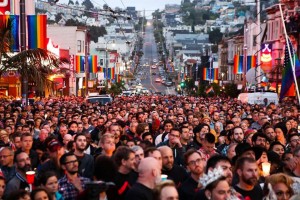 THE JUNE 12TH MASSACRE at the LGBT club Pulse in Orlando illustrates the commonalities between hate crimes and terrorism. Hate crimes tend to be more targeted against a particular demographic group, in this case, the LGBT community. Terrorism is usually indiscriminate. The only quality victims share is being in the wrong place at the wrong time. But terrorists and hate criminals both aim to instill fear in people going about their daily activities, to thwart openness, public interaction, and feelings of safety. The immediate victims are sacrificed as a means to scare a wider community or population.
THE JUNE 12TH MASSACRE at the LGBT club Pulse in Orlando illustrates the commonalities between hate crimes and terrorism. Hate crimes tend to be more targeted against a particular demographic group, in this case, the LGBT community. Terrorism is usually indiscriminate. The only quality victims share is being in the wrong place at the wrong time. But terrorists and hate criminals both aim to instill fear in people going about their daily activities, to thwart openness, public interaction, and feelings of safety. The immediate victims are sacrificed as a means to scare a wider community or population.
Omar Mateen, it appears, intentionally selected his victims from the LGBT community. According to his father, he acted because he had recently been disgusted at the sight of two men kissing in Miami in the vicinity of children. Mateen’s ex-wife and co-workers confirmed his anti-gay animus. Offended by LGBT visibility the assailant struck out at a place where we gather in private, a bar with no windows, to be amongst each other away from the glare of disapproving eyes. Clearly, Orlando puts the lie to any notion that remaining out-of-sight offers LGBT people immunity from violent homophobia. We cannot hide away and thereby assure our safety. Hate hunts us down if left unchallenged.
But the LGBT community was not the only focus of hatred for the mass murderer. His mind had been filled with the hostility of the radical jihadi movement, the ideology of which is easily accessible through the Internet. America itself was in the gunman’s sights. We can assume that perceptions of American decadence fueled his actions. A progenitor of violent Islamism, Egyptian author Sayyid Qutb, visited the United States during the early 1950s and was shocked at the intermingling of the sexes he saw. By Qutb’s standards, today’s America—47 years after the Stonewall Riots—is the leading hotbed of moral decay and sin in the world. This violent ideology drives attacks on soft targets like a small bar in Orlando, a holiday party in San Bernardino, or a mass gathering in Boston for that city’s annual Marathon.
Donald Trump, in statements before and after the massacre, has chosen to generalize his obloquy for an extremist fringe to all Muslims worldwide. His call for a ban on Muslims entering the U.S. would certainly not have prevented the tragedy in Orlando. As a U.S. citizen, Mateen could not legally be denied the right to remain in America. And the proposed ban on Muslims would only serve to alienate Muslims who would otherwise view radical jihadism with scorn, whose cooperation we need to end the carnage. Trump’s divisive and nativist rhetoric plays into the narrative of militant Islamism, which sees the West and the Islamic world in irreconcilable conflict.
Yet we cannot allow Trump’s racism to define the terms of debate. While avoiding the generalizations he makes about all Muslims, it is possible to confine opprobrium to exponents of an extremist ideology that invokes the name of God as a justification for mass murder. Their claim to be Muslims at all is subject to vigorous dispute by mainstream Islam. Nor is it possible to equate radical jihadism with the persecution of the LGBT community by religious fundamentalists in this country. For all their myriad prejudices, “Christian” fundamentalists do not advocate killing LGBT people; they’re content with making our lives miserable.
At the same time, the persistence of homophobia in this country creates an environment in which some elements will act out prejudice through violence. On the day America was struggling with the news from Orlando came a report that a man with an arsenal in his car was headed to the Los Angeles LGBT Pride festivities. Thankfully, he was apprehended by law enforcement before his designs came to fruition. More common in the past have been gay bashers lurking at the edges of large LGBT crowds such as attend Pride celebrations to beat up an unlucky person or two. The problem of anti-LGBT hatred goes much deeper than violent jihadism. If we take anything away from the Orlando shootings, it should be the realization that, despite progress toward equality, homophobia remains a lethal force that traps too many in its maw. We must not let down our guard.
Don Gorton is a longtime gay rights activist based in Boston.


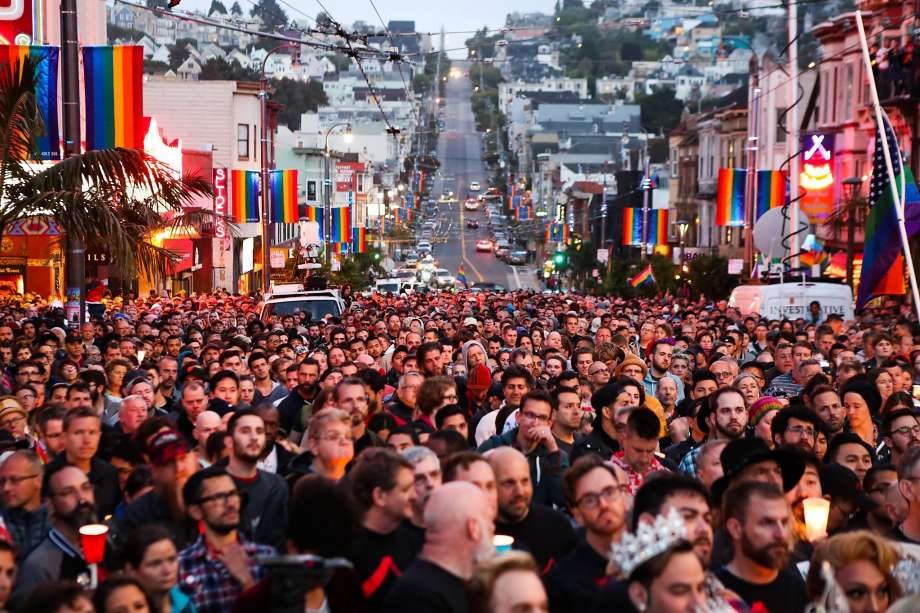

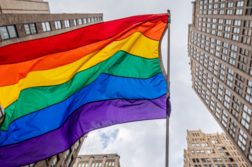
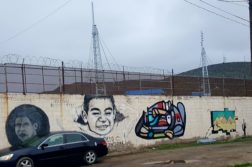
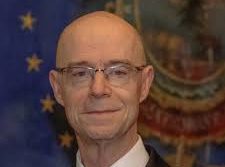
Discussion1 Comment
Re. your comment that “‘Christian’ fundamentalists do not advocate killing LGBT people” – apparently you haven’t heard of the two Baptist preachers who have done exactly that. http://www.advocate.com/religion/2016/6/14/baptist-pastor-who-cheered-orlando-murders-isnt-alone And I’m sure they’re are certainly more.